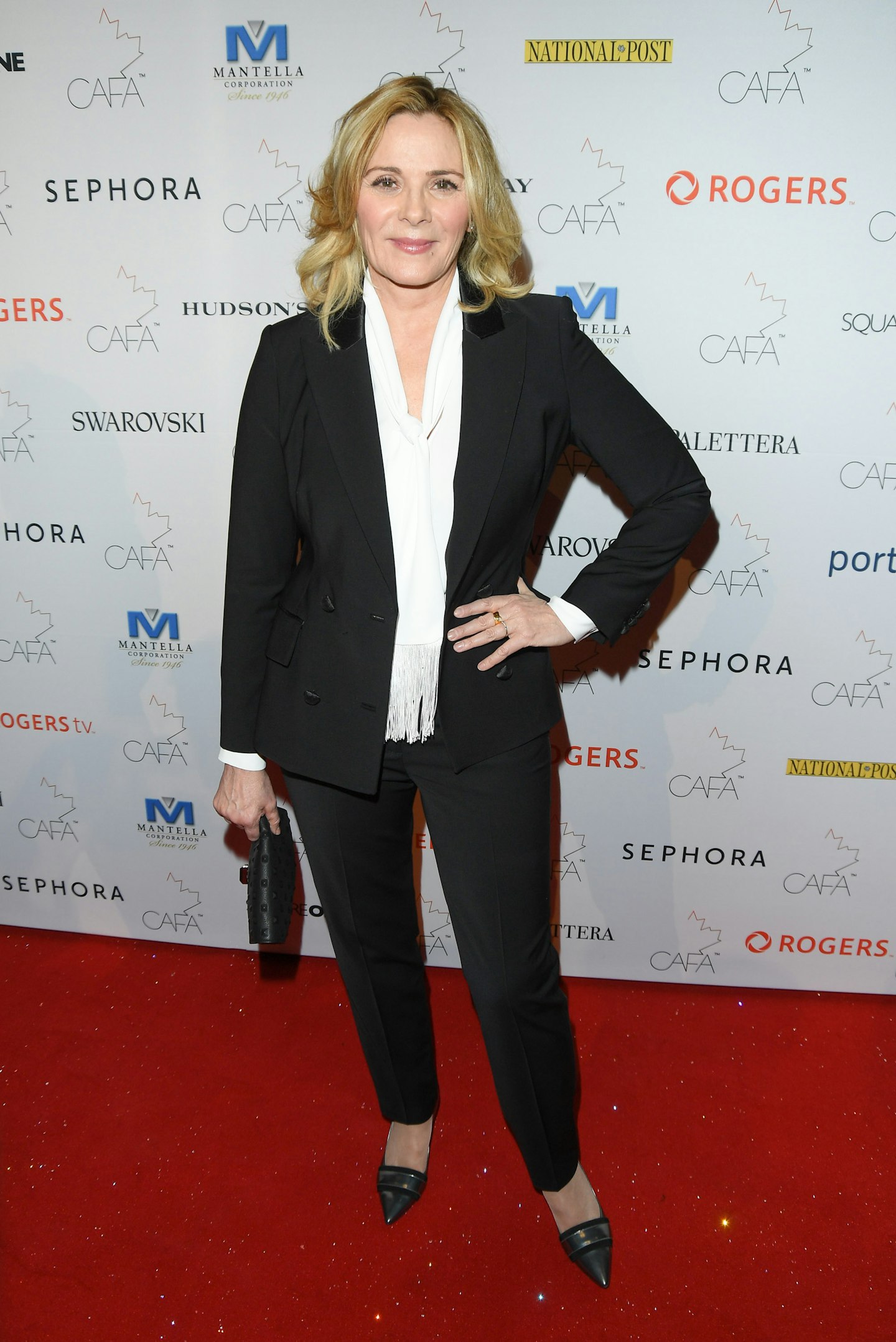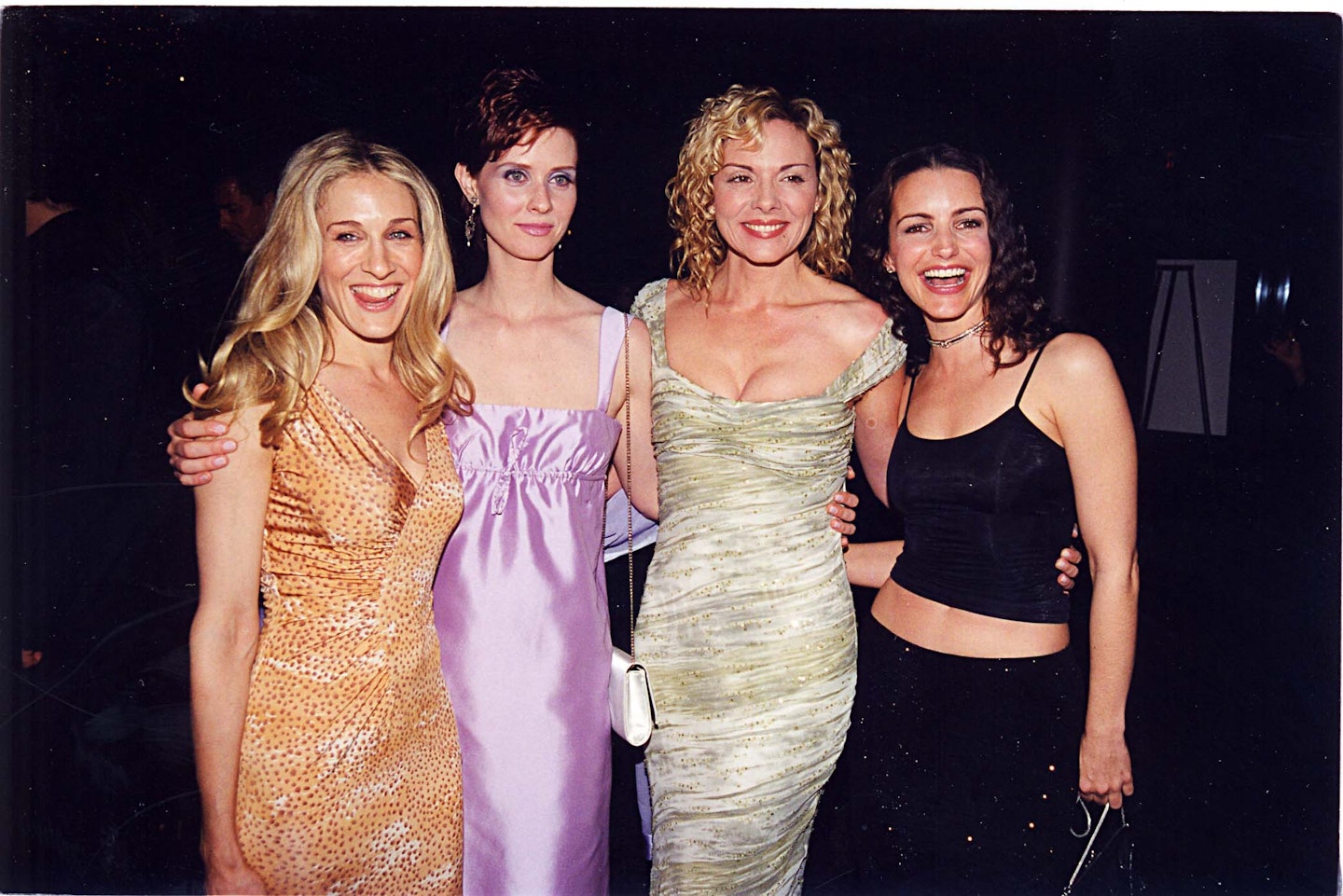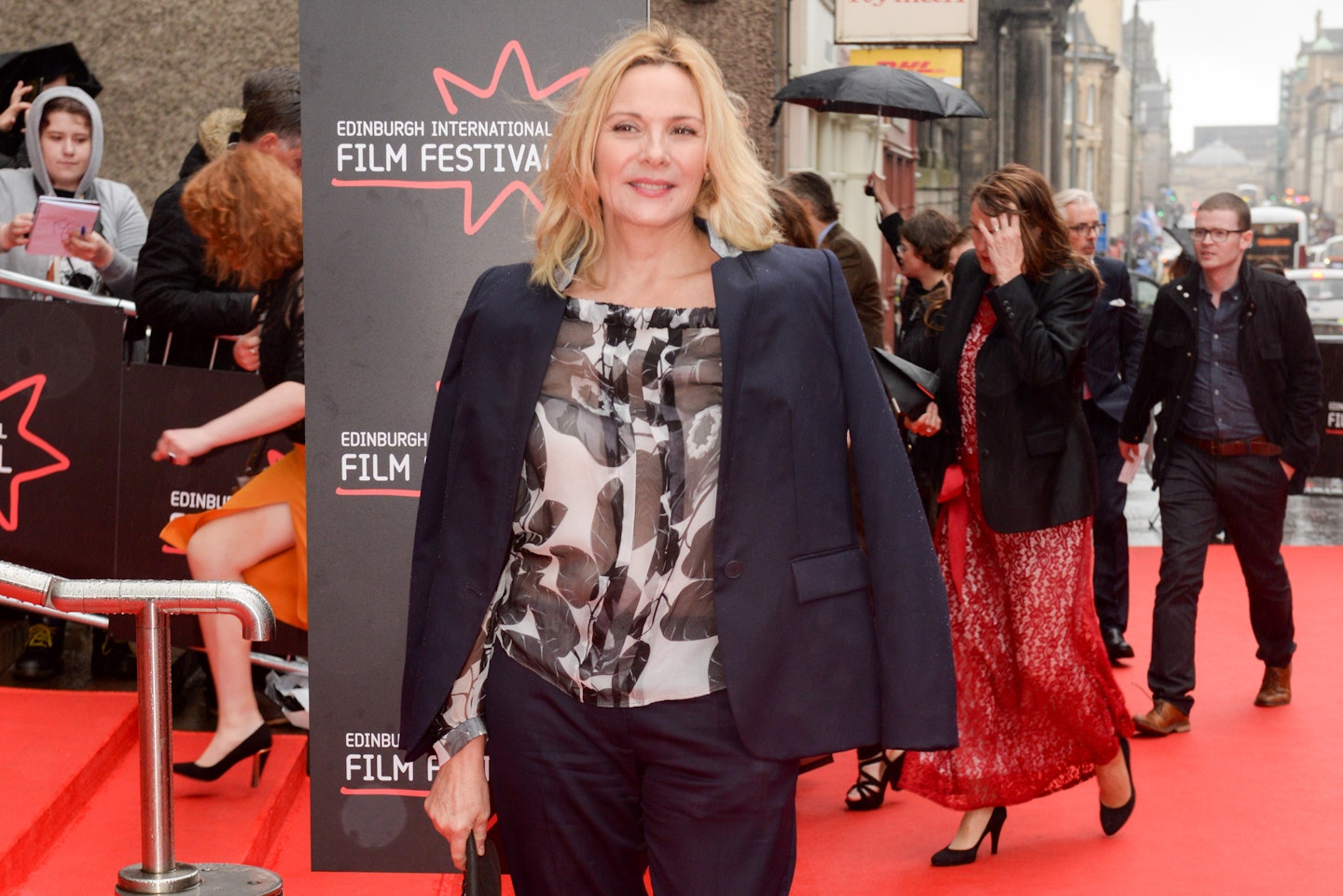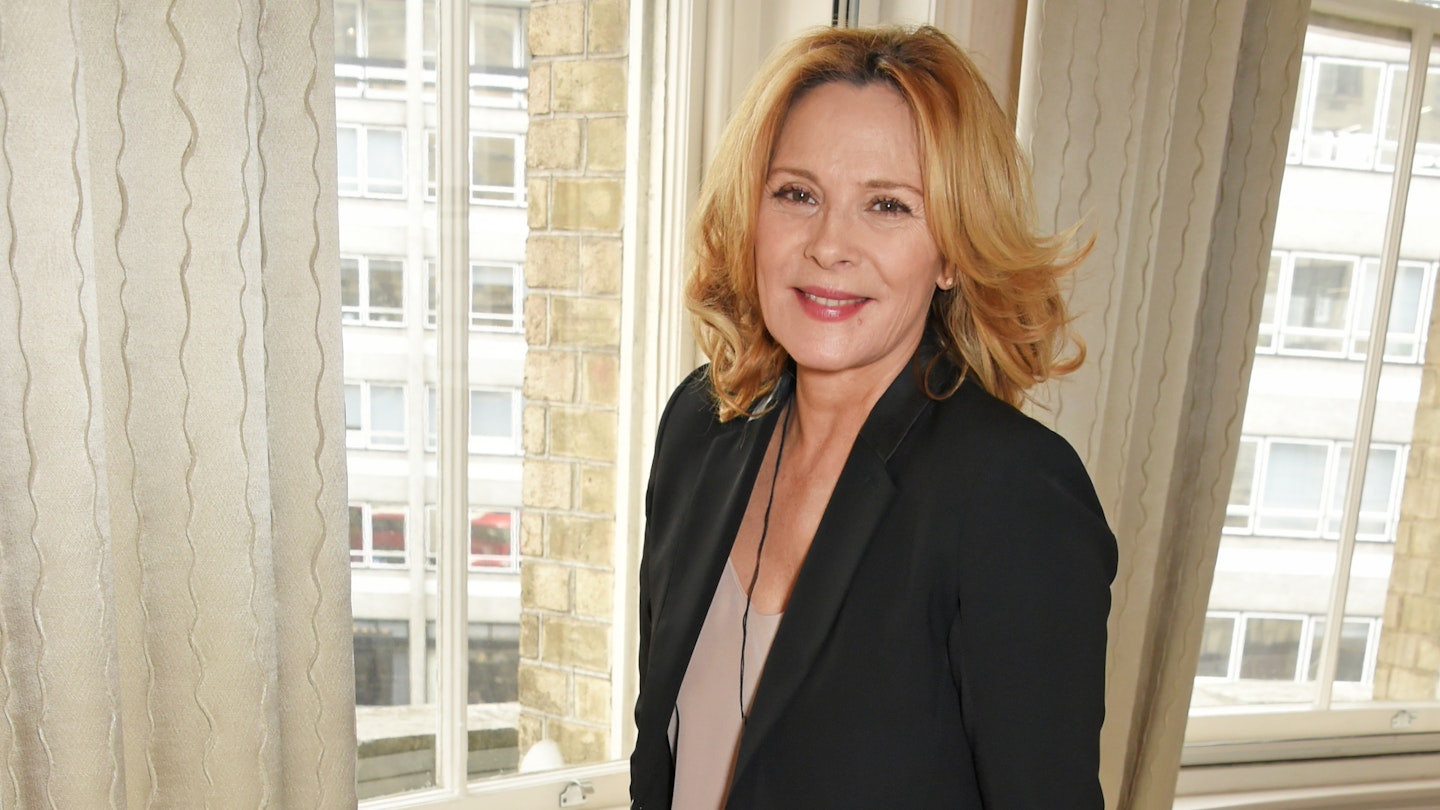From her career defining role as the much-loved Samantha Jones in Sex And The City to her theatrical turns in the likes of Anthony and Cleopatra and Private Lives, to her latest project Sensitive Skin, Kim Cattrall is passionate about the importance of telling stories that actually reflect female experience - rather than just re-hashing tired old ‘two-dimensional’ stereotypes of ‘a woman my age who’s wanting to sleep with a hot young thing,’ as she puts it herself.
It’s for this reason that Cattrall fought to get Sensitive Skin, originally a BBC Two black comedy, remade for HBO. As well as lending her expertise as executive producer, Kim stars as Davina, a 50-something woman who is attempting to navigate the ‘unchartered waters’ of middle age. ‘Her life has been a certain way for so long […] I thought, “Wow, this is a story about a woman who went right instead of left during her life, and now she’s examining that,” and well, I’m examining that in my life, too,” she explains.
Currently sitting on the judging panel at the Edinburgh International Film Festival, we caught up with Kim to talk about why we need to see older women’s stories on screen, the secret to Sex And The City’s longevity, and how social media would have made the show completely different.
You’ve played such a diverse range of characters throughout your career; what do you look for in a role?
When I was younger, I just wanted the experience of getting in front of the camera, but now, especially as a producer, I look at projects and think "What do I want to say? Does this talk to me?" When I first saw the BBC version of Sensitive Skin, I was really taken aback because it was a story I had never seen told, that was interesting, unique and original. I'm not looking to play a stock character of a woman my age who's wanting to sleep with a hot young thing; none of that really interests me. I'm interested in self-reflection, especially in my work as a producer.
It's not often that we see an older woman's story told on screen, is it?
If it does get told, it’s so two dimensional. You'll either see women as dowdy and masculine looking, or obsessed with plastic surgery and you think "Urgh, there’s got to be more to it than that."
What does the second series of Sensitive Skin hold for your character?
We've put [my character] Davina in the driver's seat. She's much more active; she starts to branch out from the role that she's always had - to hilarious consequences. It's very dark humour, though. A chord change at that point in your life can be really overwhelming - your life has been a certain way for so long that your mind goes on autopilot. When you then put yourself into a different world, which Davina does in the second series, it creates the kind of conflict that's fantastic for comedy, but also for examining the question of "Who am I in my fifties?"

Sensitive Skin is a re-make of a BBC Two show; are you a fan of British TV?
Huge! I grew up with it, in England and in Canada with my British parents. I remember first watching Elizabeth R and I, Claudius, All Creatures Great And Small... I'm drawn to the language - it really is a different language in a lot of ways to North American, and as time goes by I really love that. There's also that great British humour - Fawlty Towers and Monty Python in particular.
There’s been a lot of talk recently about how Hollywood doesn’t offer enough fully developed roles for actresses; do you think that TV offers better opportunities for exploring female characters?
Yes, I do. I remember watching Prime Suspect, another British show that I loved, and thinking "Wow, they’re not using the lens on her to hide her wrinkles, she looks like a real person," and that’s fantastic. There are so many wonderful actresses even just in supporting roles on television. I think we stil need more [opportunities]; I think we need to go deeper with some of them, and that's why Sensitive Skin has been so important to me. We need more stories about women this age; it will help younger women understand more about getting older, and inform the decisions that they're making now.
You’re a producer on Sensitive Skin; if we want to see more of these stories being told, do we need more women off screen and behind the camera?
We need more female writers to tell those stories. Women’s stories should be a reflection, as they were in Sex and the City. We had a lot of female writers in the room, so the storylines were the self-examination of what those writers were dealing with. It's been fascinating for me to be in a show and also produce it - my collaborators are two men, and though we never cross swords, there have been times when I am so clear in the discussion [about my character, about female experience] but for them, it still feels like an enigma. That's part of the battle, part of the reason for telling a story - to break down those gender barriers and make it a human story rather than 'just' a woman's story.
It’s been 18 years since the first episode of Sex And The City aired, yet it still resonates strongly with women, even if they're watching for the first time. What's the secret to it's longevity?
It's really well written. Shakespeare shows you that good writing sticks around, and why it sticks around is because it's reflecting something in humanity that people want and need - we need stories. The first story you hear is Cinderella, and you spend the rest of your life trying to get rid of the programming of that story in your head: who are you if you're not married? Who are you if you're not a mother? Who are you if you're not an aunt? The stories that we tell have to have some kind of staying power. There are so many things that you'll forgive as a viewer, but ultimately it's not going to last, it's not going to resonate if the writing is not good.

In Sex And The City, the friendships feel just as important as the romantic relationships - do you think that accounts for its longevity, too?
One of the main messages was that your friends are your family - they're your chosen family. There's a generational gap between parents and children, and we have such a fast changing world now - particularly with all the technology - that there's a whole different way of communicating with people, a shorthand that your parents don't know how to use [but your friends do].The idea that you can depend on those relationships - that those are the people that I'm calling, those are the people that I'm spending significant time with - I think Sex And The City defined that.
If Sex And The City was made now, would all the new technology - online dating, social media - mean that certain storylines would have to change?
We briefly touched on things like that, but mainly I think there’d be less conversation, period, on the phone. People just don't talk on the phone! Everything is so short and curtailed; I see scenes now in plays or old films and they seem to go on forever because we're so to the point now. I tweet for the show, and I'm so used to using symbols and shortening words - it's become a new way of communicating. Last week, I was writing a note to a friend who had done something very sweet and I thought, "Sh*t, it's been so long since I've written a letter on my gorgeous stationery" - it was only about five or six lines, but it was the most I'd written in quite a while.

You’re on the jury panel for the Edinburgh International Film Festival. What are you looking forward to on the programme?
I’m doing a talk on Thursday night which is always fun because you get to meet a lot of the people who have been following you over the years, and get their questions. It’s a very personal exchange even though it’s in a theatre; I really enjoy these talks at festivals because the people in the audience are really interested and invested in film, and the process of making it. I come away feeling so satisfied that the next generation of people, of audiences and film makers are in place; it’s really encouraging.
Is it important that more established talents like yourself support and nurture new voices in film?
Absolutely. I'm always very interested in seeing different points of view, and in how people tell stories. The great thing about films is that they can transport you so easily into a different way of thinking, a different mindset - even a different country. I really think "thank God for independent films" - growing up, I remember seeing the Fellini films, the Bergman films, and being really transported.
I think that really is good for someone; it breeds tolerance and understanding. We're living, sadly, in a more and more close minded society, especially when it comes to immigrants. For me, independent film was about experiencing another way of thinking, another way of living.
Samantha in Sex And The City was obviously such an iconic role. Do you get tired of people conflating you with her character? Is it a blessing or a curse?
It’s always been pretty much a blessing. She’s such a positive character and she’s so beloved: people really took her to heart and while she’s cheeky and funny, she’s also vulnerable. What I loved about her was her tremendous strength and her acceptance of who people were: she was not judgemental, ever. I'm just so grateful that I got to play her and see her through so many different stages, physically and emotionally.
